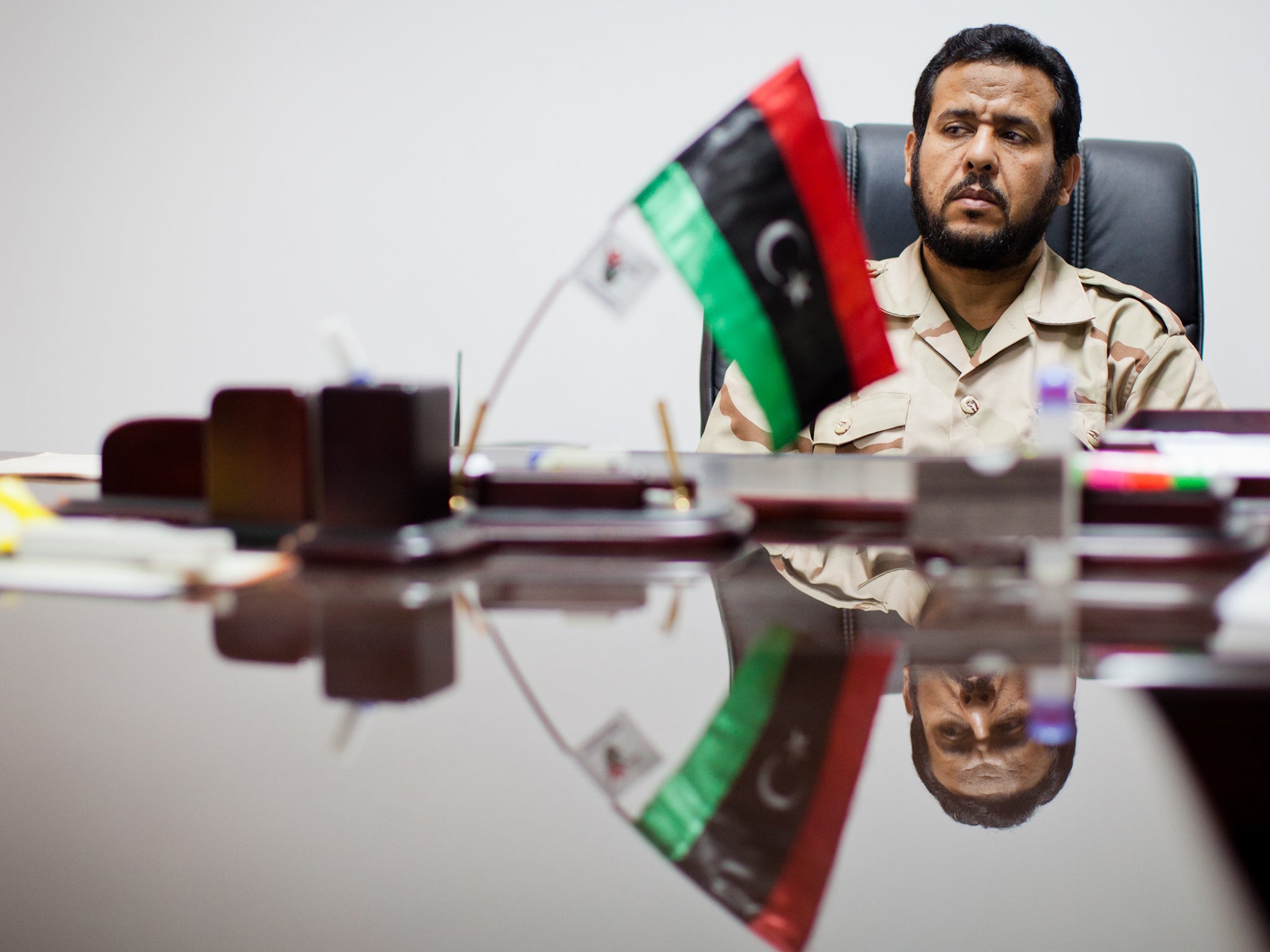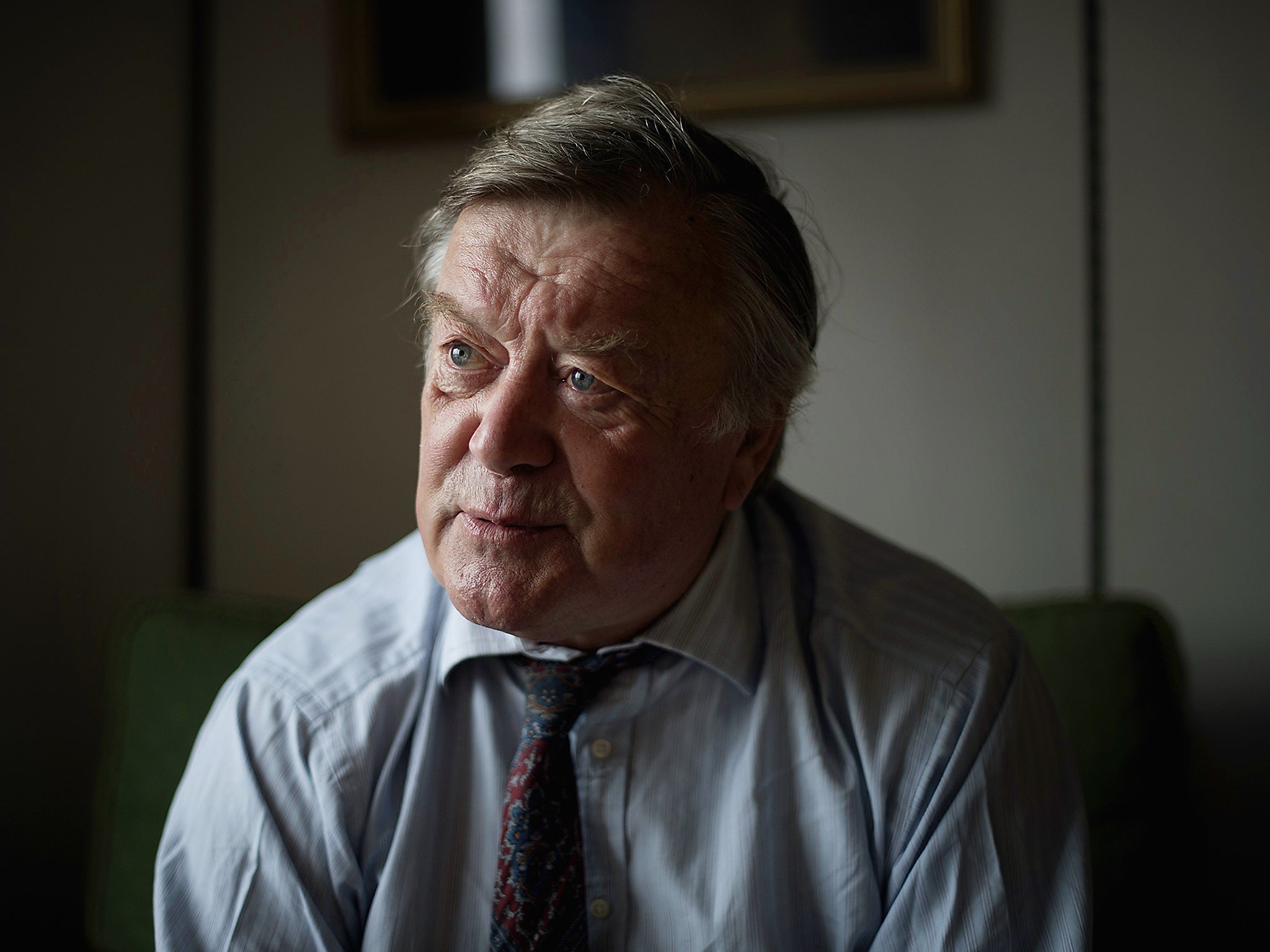UK breaching international law over torture ‘cover-up’, UN expert warns
‘Here, we’re talking about a policy of co-operating with torture and rendition and that goes very high up. It’s impossible that it was not green-lighted or at least tolerated by top officials'

A UN special expert has formally warned the UK its refusal to launch a judicial inquiry into torture and rendition breaches international law, The Independent can reveal.
UN special rapporteur for torture Nils Melzer accused the British government of covering up its involvement in the practices post-9/11, saying he suspects a cover-up organised to protect figures who are “very high up”.
He has written a private “intervention” letter to the foreign secretary challenging the refusal to investigate “credible” claims that UK officials have been involved in torture.
He told this newspaper it appears the government has engaged in a conscious policy of cooperating with torture since 9/11, saying it is “impossible” the practice was not approved or at least tolerated by top officials.
The letter says the UK government must hold a judicial inquiry and prosecute government officials found to be responsible, as it is bound by the UN Convention Against Torture to criminalise all acts of torture whenever there are credible grounds. Such grounds were established by evidence published by Parliament’s Intelligence and Security Committee (ISC) in 2018 which showed British intelligence agencies have been involved in torture and rendition cases since 9/11, the letter said.
“The interesting question is not whether the UK was involved in torture because you already have the evidence. You already have the Intelligence and Security Committee saying so,” Melzer told The Independent.
“You [the UK government] have a legal obligation to investigate and to prosecute.”
Mr Melzer, who is an expert in international law and has been deputy head of delegation at the International Committee of the Red Cross, said the government’s refusal to hold an inquiry is a “scandalous” breach of the law and a move towards “disabling democracy.”
He is concerned the government is blocking the judicial investigation to protect senior officials who he believes may have authorised the involvement.
“It’s not some rogue soldier going crazy … killing a prisoner somewhere in Afghanistan because he’s mentally disturbed,” he said.
“Here, we’re talking about a policy of co-operating with torture and rendition and that goes very high up.
“It’s impossible that it was not green-lighted or at least tolerated by top officials. And obviously that’s where every government starts drawing lines, and they don’t want to investigate.”
The Reprieve legal charity and MPs David Davis and Dan Jarvis launched a judicial review over the government's “refusal” to hold the inquiry on Thursday.
Papers lodged at the High Court accused ministers of failing to deliver on promises to hold a fully independent, judge-led inquiry into alleged British complicity in US torture and extraordinary rendition as part of the “war on terror”.
They argue that the failure is irrational and violates Article 3 of the European Convention on Human Rights as well as common law prohibition of torture. The government must respond within 21 days.
Maya Foa, the director of Reprieve, said: “The powerful must be held to account so that victims can move on with their lives, but just as importantly because if we do not fully investigate our past mistakes, we are doomed to repeat them.”
Mr Davis, a veteran Conservative MP and former minister, accused the government of “years of dither and delay”.
“Torture doesn’t produce reliable intelligence, and involvement in it makes everyone in this country less safe,” he said.
“We must take a clear-eyed look at this dark period in our recent history, and give victims the redress and accountability they were promised, and face the future with a clear conscience and determination not to repeat the mistakes of the past.”
Parliament’s Intelligence and Security Committee published two reports in June 2018 which revealed the UK’s oversees intelligence service MI6 and the domestic spy agency MI5 were involved in hundreds of torture cases and scores of rendition cases since 9/11. Although they found no evidence of abuse directly carried out by UK personnel, a key passage in the reports said then foreign secretary Jack Straw authorised MI6 for the cost of funding a plane which was involved in an individual rendition case, raising questions about the involvement of senior officials.
Committee chair Dominic Grieve said it was forced to end its investigation early because then Prime Minister Theresa May denied it access to key intelligence officials and witnesses. The committee decided to publish their findings in 2018 and called for the government to establish an inquiry into the matter “without further delay.”
The same year the British government officially apologised to a Libyan man, Abdul Hakim Belhaj, for the role MI6 played in kidnapping and the rendition of him and his pregnant wife to Muammar Gaddafi’s Libya in 2004. The couple were taken from Malaysia to Thailand, tied to the floor of a military transport and flown to Libya, where they were imprisoned – and Mr Belhaj, who was a known enemy of Gaddafi, was tortured.
Letters from MI6 counter-terrorism head at the time, Sir Mark Allen, were found by Human Rights Watch in 2011 after Gaddafi’s downfall and revealed the agency was involved.
“This was the least we could do for you and for Libya to demonstrate the remarkable relationship we have built over the years … The intelligence about… [Belhaj] was British. I know I did not pay for the air cargo. But I feel I have the right to deal with you direct on this,” a fax from Mr Allen said.
On 18 July, Cabinet Office minister David Lidington announced the government would not hold a judge-led inquiry into torture and rendition telling the House of Commons it has “no legal obligation” or “policy reason” to launch one. He added that the guidance and training for UK personnel dealing with detainees who are held by others has been revised.
Mr Melzer said the decision to rule out the inquiry is both illegal and a threat to the separation of powers because the government is dominating the other two branches of the state, the judiciary and Parliament over the torture investigation, which sets a dangerous precedent if unchallenged.
“We’re creating absolute power,” Melzer told The Independent.
“We know … from history, a government that has unchecked power will abuse that power … we’re allowing people to abuse their power and this can escalate to the worst. So we’re clearly not there yet … But once we’re there it’s too late.”
The UK Foreign Office (FCO) referred The Independent to the statement by Mr Lidington on 18 July which said, “The Government do not participate in, solicit, encourage or condone the use of torture or of cruel, inhuman or degrading treatment ... To do so … would also be a betrayal of everything that we stand for as a nation.
“There is no policy reason to… [hold an inquiry], given the extensive work already undertaken to improve policies and practices in this area. The Government’s position is also that there is no legal obligation.”

Kenneth Clarke, MP and co-chair of the all party parliamentary group (APPG) on extraordinary rendition, told The Independent it’s a “cover-up” and senior officials are hiding in the “long grass”.
“They don’t want to reveal who took the decisions, what authorisation they have, what was the policy that led to us abandoning our normal prohibitions on being involved with torture or being involved with forceful rendition,” he said.
Mr Clarke took a leading role setting up the present ISC with more powers and believes the government “ground it to a halt,” because “it was getting too far … exposing too much” and was looking in depth into things that were “really worrying” including authorisation and motive. He has spoken to members of MI6 and the government about the need for an inquiry. One MI6 official whom Mr Clarke declined to name reportedly argued: “Well it’s all so long ago. It’s all so different now. That doesn’t happen like that now. It’s all changed. Don’t worry, it’s fine.”
Others in government reportedly told him there have been too many public inquires and they cannot spend millions of pounds on another. “I’m afraid I think that’s a cover-up,” Mr Clarke said.
Lord Robin Hodgson, who works on the APPG for extraordinary rendition alongside Mr Clarke, said public interest in the issue has been worn out, adding the security services are using their “ace of trumps” which is the argument that “this is keeping the country safe minister.”
Former MI5 officer and whistleblower Annie Machon told The Independent she agreed it bore the hallmarks of a cover-up, adding the intelligence agencies have been “caught with their pants down.” She said in the nineties MI5 had an “older tribal knowledge” from experience in Ireland that torture was counter-productive, produced blowback and was an unethical recruiting drum for terrorists, so they avoided it.
But after 9/11 the US went “helter-skelter” down the path of extraordinary renditions and extrajudicial killings and the UK agencies with their close working relationship quickly followed.
There was also tension among the British agencies, with the head of MI5 Baroness Eliza Manningham-Buller pushing back against the use of torture, extraordinary rendition and war with Iraq arguing it was dangerous for national security while MI6 head Richard Dearlove was more willing to do what the Blair government wanted, she added.
Senior officials have been protected while MI6 officers who might have come forward about torture and rendition during the Chilcot inquiry were not given a chance, Ms Machon added.
She believes the Belhaj case contains some of the most damning and disturbing evidence of UK involvement in torture and rendition after 9/11.
“I think because they’ve been caught out now particularly with the Belhaj case… That has caused massive embarrassment,” she said.
“So I would assume that both agencies have pulled back… again from the idea of ever being involved in torture.”
The UN special rapporteur hasn’t yet had a reply to his 19 August letter, which he said is unusual when dealing with the UK and the other “mature democracies.”
The Foreign Office told The Independent they still have time to reply before the deadline, adding that through the FCO’s Magna Carta Fund for Human Rights and Democracy they have supported “over £500,000 of programmes aimed at preventing torture around the world”.
Join our commenting forum
Join thought-provoking conversations, follow other Independent readers and see their replies
Comments
Bookmark popover
Removed from bookmarks